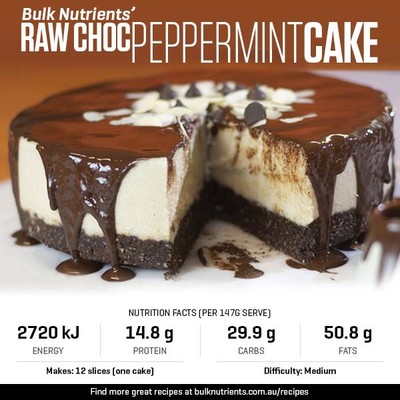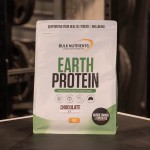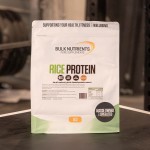Vegan Protein Powder vs Whey Protein for Muscle Gains

Pea and Rice Protein vs Whey Protein for Muscle Growth
Like omnivores, vegans need a good quality lean protein supplement to ensure they don't go overboard on their fat and carbohydrate requirements. We hear a lot about soy protein for muscle growth, but pea and rice protein don't usually get the applause they probably deserve. So let's dive into some scientific findings!
One study compared whey and rice protein in 24 healthy males in their 20s. To take part in the study, the subjects were required to stop taking all nutritional supplements three months ahead of the research.
The subjects had performed resistance training at least 3 times per week for the past 6 months and had been training for at least a year. Such criteria are critical because newbies recruited for studies can grow muscle easily (and thus an adequate answer to a given hypothesis is harder to obtain). The subjects were matched by weight, age, strength and experience, and then placed into a rice or a whey group. They were given either 48 grams of whey protein or 48 grams of rice protein.
So what did they find?
Both rice and whey protein improved body composition and exercise performance, and there "were no differences between the two groups." And there's more!
Another study compared vegetable pea protein to whey protein and a placebo. 161 males from the ages of 18-35 participated in the research for 12 weeks.
The men trained their biceps and were randomised to take either 25 grams of pea protein, whey protein, or a placebo twice daily.
Their biceps growth was measured via ultrasound at the start, middle, and end of the research. Strength was also accounted for. So what did they find?
No difference between both protein groups in terms of muscle growth, and muscle strength was not statistically different between the groups. The researchers concluded:
"Since no difference was obtained between the two protein groups, vegetable pea proteins could be used as an alternative to Whey-based dietary products."
And the aforementioned studies won't surprise anyone who has bothered to look at the amino acid levels of vegan protein powders. The beauty of food processing (and thus, some supplements) means amino acid profiles and nutrient availability can be modified for the end user. Take, for example, whey protein, which actually has a higher biological value of protein in comparison to beef, chicken, and fish!
We know that the amino acid leucine is the key regulator to muscle growth and recovery and that some plant proteins don't have the same amount of leucine that omnivore varieties do. But vegan protein powders (soy, rice, and pea protein) compete easily with whey protein. Check out the comparison table below:
| Amino Acid | Whey Concentrate | Soy Isolate | Rice Concentrate | Pea Isolate |
|---|---|---|---|---|
| Alanine | 3.5 | 3.5 | 5.4 | 3.42 |
| Arginine | 2.3 | 6.66 | 9.1 | 7.11 |
| Aspartic Acid | 8.4 | 9.79 | 8.6 | 9.67 |
| Cysteine | 1.7 | 1.4 | 2.4 | 0.85 |
| Glutamic Acid | 13.3 | 18.07 | 17.2 | 14.14 |
| Glycine | 1.4 | 3.7 | 4.25 | 3.37 |
| Histidine | 1.6 | 2.5 | 2.1 | 2.02 |
| Isoleucine | 4.6 | 3.57 | 4.4 | 3.93 |
| Leucine | 8.8 | 7.03 | 8.3 | 8.72 |
| Lysine | 7.5 | 5.33 | 3.4 | 6.84 |
| Methionine | 1.6 | 1.21 | 3.17 | 0.82 |
| Phenylalanine | 2.6 | 4.54 | 5.45 | 4.36 |
| Proline | 6.6 | 4.73 | 4.9 | 3.41 |
| Serine | 4.6 | 3.93 | 4.8 | 4.27 |
| Threonine | 4.5 | 3.36 | 3.6 | 2.87 |
| Tryptophan | 1.3 | 0.72 | 1.2 | 0.72 |
| Tyrosine | 2.3 | 2.98 | 5.4 | 3.02 |
| Valine | 4.4 | 3.45 | 6.1 | 4.15 |
Table: McCarthy, C. - veganmuscleacademy.com

Combining vegan protein powders for optimal muscle growth
Another popular way to increase the amino acid profiles of your vegan protein powders is to combine them as we have with our Earth Protein.
The table below demonstrates what a blend of pea and rice protein has on the final amino acid profile, and how it compares to whey protein powder:
| Whey Concentrate Amino Acid Profile (Per 100g) | Pea (70%) + Rice (30%) Amino Acid Profile (Per 100g) | ||
|---|---|---|---|
| Alanine | 3.5 | Alanine | 4.0 |
| Arginine | 2.3 | Arginine | 7.7 |
| Aspartic Acid | 8.4 | Aspartic Acid | 9.3 |
| Cysteine | 1.7 | Cysteine | 1.3 |
| Glutamic Acid | 13.3 | Glutamic Acid | 15.0 |
| Glycine | 1.4 | Glycine | 3.6 |
| Histidine | 1.6 | Histidine | 2.0 |
| Isoleucine | 4.6 | Isoleucine | 4.1 |
| Leucine | 8.8 | Leucine | 8.6 |
| Lysine | 7.5 | Lysine | 5.8 |
| Methionine | 1.6 | Methionine | 1.5 |
| Phenylalanine | 2.6 | Phenylalanine | 4.7 |
| Proline | 6.6 | Proline | 3.8 |
| Serine | 4.6 | Serine | 4.4 |
| Threonine | 4.5 | Threonine | 3.1 |
| Tryptophan | 1.3 | Tryptophan | 0.9 |
| Tyrosine | 2.3 | Tyrosine | 3.7 |
| Valine | 4.4 | Valine | 4.7 |
Table: McCarthy, C. - veganmuscleacademy.com
Further research in 2021 has examined muscle growth and strength in the context of vegan diets vs omnivore diets in untrained young men. The subjects were supplemented with plant-based protein powder (soy) and whey, respectively. And critically, the protein was matched in both diets in the study. And what was found?
No difference between both approaches in muscle strength and growth! They concluded: "...protein source does not affect resistance training-induced adaptations in untrained young men consuming adequate amounts of protein."

Whilst more research is needed, and subjects were untrained, it goes to show that being a vegan is not a huge hindrance to muscle gain.
The bottom line is that with the appropriate vegan protein supplements (pea and rice protein, or a combination of both!) there's nothing to be concerned about when it comes to growing maximum muscle.
And we've got you covered with our Bulk Nutrients Pea Protein option, or our Rice Protein.
Choose what you like (or enjoy a combination of both) and you'll be well on your way to achieving your muscle growth goals!

Dayne Hudson
Like many, Dayne was once desperate to lose weight and get into shape. But everyone he asked, everything he read, lead to the same place... nowhere.
His journey started there - researching science journals and completing a Sports Nutrition Specialist qualification so he could make weight loss easier.
References:
- Babault N, Païzis C, Deley G, et al. Pea proteins oral supplementation promotes muscle thickness gains during resistance training: a double-blind, randomized, Placebo-controlled clinical trial vs. Whey protein. J Int Soc Sports Nutr. 2015;12(1):3. Published 2015 Jan 21. doi:10.1186/s12970-014-0064-5
- Churchward-Venne TA, Burd NA, Phillips SM. Nutritional regulation of muscle protein synthesis with resistance exercise: strategies to enhance anabolism. Nutr Metab (Lond). 2012;9(1):40. Published 2012 May 17. doi:10.1186/1743-7075-9-40
- Gorissen SHM, Crombag JJR, Senden JMG, et al. Protein content and amino acid composition of commercially available plant-based protein isolates. Amino Acids. 2018;50(12):1685-1695. doi:10.1007/s00726-018-2640-5
- Hevia-Larraín V, Gualano B, Longobardi I, Gil S, Fernandes AL, Costa LAR, Pereira RMR, Artioli GG, Phillips SM, Roschel H. High-Protein Plant-Based Diet Versus a Protein-Matched Omnivorous Diet to Support Resistance Training Adaptations: A Comparison Between Habitual Vegans and Omnivores. Sports Med. 2021 Jun;51(6):1317-1330. doi: 10.1007/s40279-021-01434-9. Epub 2021 Feb 18. PMID: 33599941.
- Joy JM, Lowery RP, Wilson JM, et al. The effects of 8 weeks of whey or rice protein supplementation on body composition and exercise performance. Nutr J. 2013;12:86. Published 2013 Jun 20. doi:10.1186/1475-2891-12-86
Related Blogs

Can I Still Grow Muscle at the Same Rate on a Vegan Diet?
Posted by Dayne Hudson
Estimated reading time: 6 minutes

Raw Choc Vegan Peppermint Cake
Posted by Nicole Frain
Recipe difficulty: Hard































